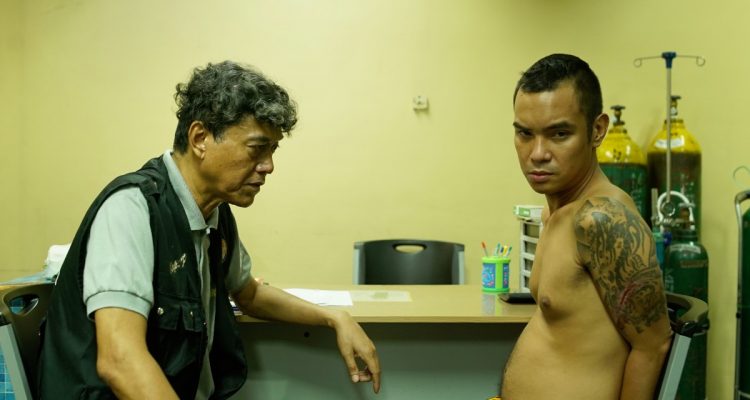By the five-minute mark, “Verdict” presents itself as an urban drama running with the ferocity of a high-octane action flick. Before the audience is given the chance to gain their bearings, the film has already dragged them through a sequence of events so intense and frighteningly realistic that questions abound about whether the events on screen are within the confines of a fictional narrative or factual documentary.
Surprisingly, apart from its cinematography and suspense, “Verdict” bears no connection to a thriller whatsoever. As a procedural depiction of a woman caught within the confines of an abusive marriage, the film is one of the most unique courtroom dramas to premiere in years. Admirably, director Raymund Ribay Gutierrez’s feature debut never flaunts its best qualities as much as it allows the audience to slowly discover the details for themselves.
READ MORE: 2019 Venice Film Festival Preview: 15 Must-See Movies
Notably, documentary-like realism serves as the primary selling point for this Filipino crime drama. The claustrophobia-inducing camerawork and surgically precise editing of the piece promote an atmosphere that thrives on anxiety and dread. Furthermore, while the majority of courtroom dramas sparkle with sophistication and flowery diatribes, “Verdict” is unrepentantly grimy. No one is clean-cut and no plotlines are exaggerated for the sake of entertainment—Gutierrez is focused solely on preaching the film’s underlying message, as unforgivingly bleak as it may be.
For those unfamiliar with Filipino culture, “Verdict” functions as an insightful, grueling indictment on an institution at odds with the livelihood of the citizens it seeks to help. The trial of Joy (Max Eigenmann) and Dante (Kristoffer King) symbolizes the social issue of domestic abuse in the Philippines in its entirety, and from this viewpoint, Gutierrez employs one woman’s struggle as the voice for a hopelessly oppressed demographic. Relatedly, the movie’s references to religion, both understated and overt, add to the overall weight of the legal battle between good and evil, while also contributing to the film’s murky morality.
READ MORE: 2019 Fall Preview: The 45 Most Anticipated Films
Admittedly, this oppressive sensation of hopelessness drags “Verdict” out of the depths of artistic complacency, although the film itself strays far from perfection. While the first act springboards the plot into overdrive, immediately captivating the audience’s attention, the second act nearly implodes upon itself due to its lack of energy. Comparable to the disheartening lack of development in Joy’s court case, “Verdict” slows from a sprint to a leisurely stroll, and considering the film’s two-hour runtime, “Verdict” never fully recovers from this massive loss of momentum.
Moreover, the editing, while a key player in preserving the film’s frenetic pace, appears, at times, to be choppy. For the majority of the film, the passage of time is nearly incalculable and integral events either take place off-screen or are only referred to in conversation, which lends itself to a feeling of confusing disconnect towards the events taking place on the screen. Nevertheless, the feature’s conclusion is a satisfying gut punch that solidifies everything that Gutierrez set out to accomplish. The bittersweet resolution not only revives the filthy, nearly noir-esque aesthetic of the film’s opening, but also allows for Joy’s character to reach a resonant arc.
“Verdict” is by no means a flawless work; at its highpoints, the film nears greatness, but its accompanying flaws forbade any overwhelming praise. Regardless of its drawbacks, this piece of courtroom cinema is important. Few films in the subgenre feel this self-assured and palpably accurate. Embodied with a timely subject matter, confident artistry, and a thought-provoking conclusion, “Verdict” paints an aggressive, politically fueled portrait with carefully portioned subtlety. [B]

